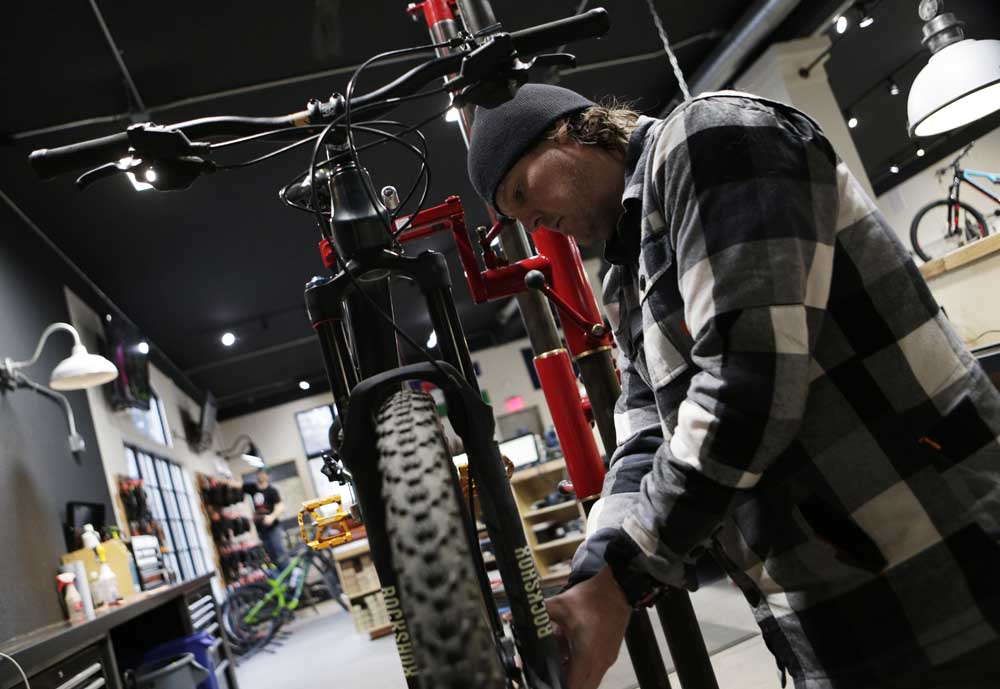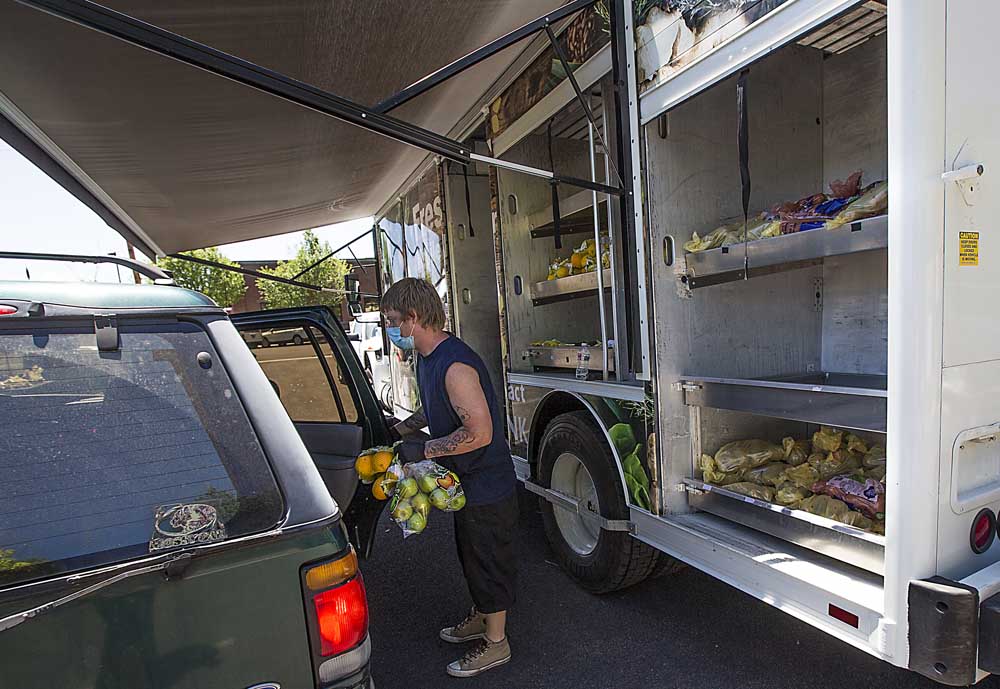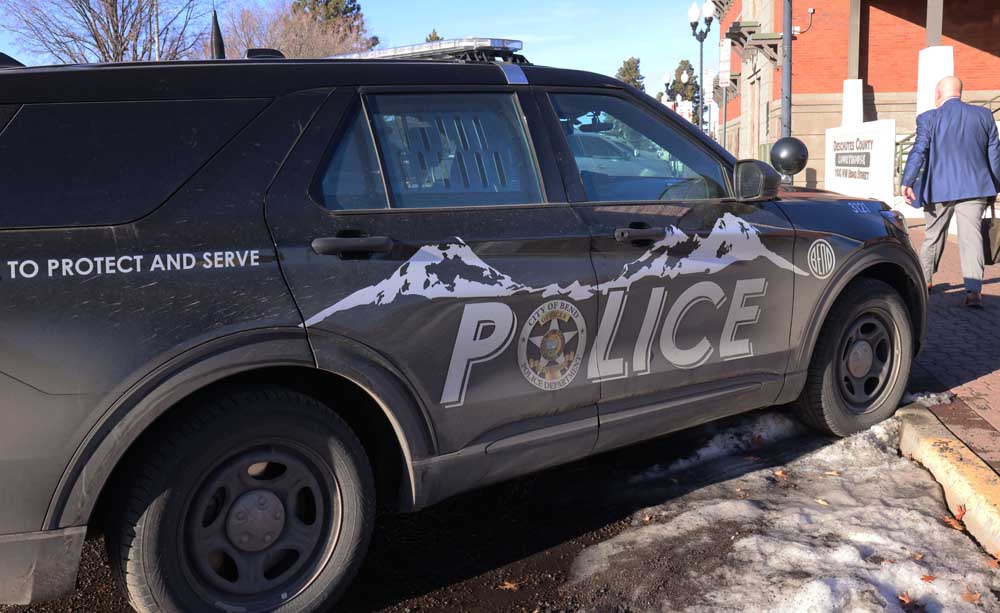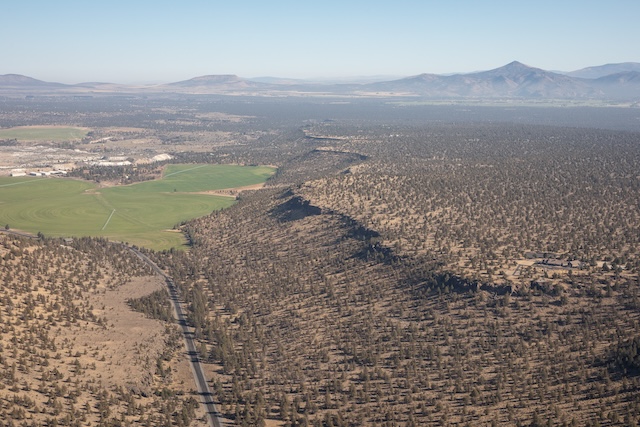Bend supports abundance of bike shops
Published 12:00 am Sunday, January 21, 2018

- Project Bike opened in August and has found success through partnerships with popular manufacturers.
Bend bicycle shop owner Kevin Gorman says 2017 was his best year since starting the business, which began two decades ago as a web-based store selling accessories and niche brands.
Gorman attributes WebCyclery’s strong sales to a growing and loyal customer base. His customers tend to be cycling enthusiasts who are willing to spend at least $1,500 on a new ride. It’s because of those savvy, affluent customers that Bend, a city of 91,000 people, can support at least 11 specialty bike retailers, Gorman and other shop owners said.
“We’re in a little bubble,” Gorman said. “People have money. They like their toys. They use bikes, so they buy nice bikes.”
Yet the big picture for bicycle retail is dim. Overall participation in cycling has declined since its peak in 1995, according to Gluskin Townley Group, which prepares a market study for the National Bicycle Dealers Association. And sales are down.
“The bike business has been challenged for the last couple of years,” said Matt Powell, senior industry adviser at The NPD Group in Port Washington, New York, which tracks all U.S. retail sales. According to NPD’s model, U.S. retailers, including big-box stores and specialty shops, sold $6 billion in bikes last year through November, down about 4 percent from the same period of 2016.
“We’ve seen a movement away from the road bike to either a commuter bike or a mountain bike, which are much less expensive,” Powell said.
There are signs that even a dirt rider’s paradise like Bend is at its retail saturation point. Bend Cyclery closed its shop off Century Drive earlier this month. Owner Eric Smith, who’d been in business at various locations since 1996, said competition from manufacturers selling online, as well as from local shops, was a factor in his store’s decline.
He said Project Bike, a store that opened in August on NW Bond Street, represents several brands that used to be found at other shops, including Bend Cyclery. Project Bike picked up the Norco Bicycles brand after Bend Cyclery had given it up, Smith said. Sagebrush Cycles, a shop nearby on SW Century Drive, lost the Rocky Mountain Bicycles brand. “They outright stole ’em,” Sagebrush owner James Gritters said of the brands that he and others lost to Project Bike.
It’s true that most of the brands sold at Project Bike had been found at other shops in Bend, but that’s not out of spite toward competitors, sales manager Cary Griffin said.
“There are only so many reputable mountain bike brands,” he said. “They want to be well-represented, especially in these rich cycling cultures like Bend is.”
Project Bike was opened by John Frey, a former sales manager at Hutch’s Bicycles, which has two locations in Bend, plus stores in Redmond and Klamath Falls. Frey was traveling and couldn’t be reached for comment.
Project Bike is trying to create a “quality experience for all riders, not just racers,” marketing manager Adam Fancher said. The store is also trying to become a hangout, where people can stop in to watch a race, or have a beer while waiting for their bike to be serviced, he said.
With a few exceptions, bicycle manufacturers sell through one dealer per town. Exclusive rights to high-end, niche brands give each shop a way to build its own following, Sagebrush’s Gritters said.
“We all vie for that guy who doesn’t want to buy a Specialized, but he wants something really nice,” he said.
Gritters said he’s felt the impact of national trends. “A lot of statistics show cycling is a sport people just aren’t getting into,” he said.
Participation in cycling peaked in 1995 at 56 million Americans age 7 and up and has been at or below 40 million since 2006, according to the U.S. Bicycle Market report prepared by Gluskin Townley Group for the bicycle dealers association.
“This continues to be, in our opinion, the most important single issue facing the U.S. bicycle business,” the report’s authors wrote.
Gritters said he’s protected his business by working with manufacturers that won’t undercut his prices online and by building his service department’s reputation. He expects more than half his business to come from service this year.
“Repair is where you make up for everything,” he said.
Hutch’s Bicycles is also looking for ways to expand the service side of its business and draw more people into the store, general manager Petie Thom said. This summer she hopes to add another mechanic and open a new space next to the Third Street store that will be dedicated to bicycle fitting.
One reason Hutch’s is thinking about its future: Giant Bicycles, one of two brands sold at Hutch’s, began selling online directly to consumers. The bikes still must be picked up at a dealer, which receives a percentage of the sale for assembly and service, Thom said. “I don’t know if it’s going to hurt us or not,” she said.
Nevertheless, Thom said Hutch’s recognizes that online sales are a big change for the bicycle industry. “It’s up to us to change the way we do things, too,” she said.
Compared with specialty retailers like camera stores, bike shops have been cushioned from growth in online sales because bicycles are so complex and benefit from expert assembly, said Ray Keener, executive director of the Bicycle Product Suppliers Association in Boulder, Colorado. “We’re doing pretty well to keep our brick-and-mortar stores open,” he said.
Keener guessed there are half as many shops as 25 years ago. Precise information about the number of bicycle shops in each state is not available from the National Bicycle Dealers Association, which also declined to state its total number of members.
Last year was tough on bicycle sales because of the snowy winter, followed by the solar eclipse and wildfires, Thom said. But she sees the setback as temporary. Bend is still a good place to sell bikes because people are moving here — often it’s because Central Oregon has so many places to ride.
“As long as people are moving here, I’m not too worried about it,” she said.
Sunnyside Sports co-owner Susan Conner agrees that Bend’s bicycle market is insulated. “What we find is that we are more affected by weather than by any national trends, economic or otherwise,” she said. “If there’s snow on the ground, it hurts the bike business. When we have a beautiful spring and the trails are firm and good, then we really rock.”
As Bend’s longest-running bike shop, Sunnyside has learned to shift with changes in consumer tastes, Conner said. Sunnyside is known as the go-to shop for road cycling, she said, but more of its sales come from mountain bikes now. Sunnyside, Sagebrush and others hope to see growth from a new category of bikes for riding long distances on gravel roads. Gravel bikes look like road bikes, but they’re built to accommodate knobby tires and other features that make the ride more comfortable. Gritters at Sagebrush said he’s organized the first gravel race/ride, “Bust Your Butte Gravel Challenge,” April 21.
Sunnyside and Hutch’s are also embracing electric bikes, which can also be found at two separate specialty stores, Pedego Electric Bikes and Bend Electric Bikes. U.S. sales of electric bikes tripled over 36 months to $64.9 million through July, according to NPD Group. They appeal to both baby boomers and millennials for different reasons, said Powell, of the NPD Group.
Most electric bikes are being sold through specialty shops, and bikes costing $2,000 or more are driving sales, according to NPD Group. In contrast, national mountain bike sales are driven by models that cost $300 to $500, he said.
Although millennials are into fitness and outdoor activities, they’re casual about it, Powell said. That’s had an impact on a lot of sports, not just cycling, he said. “They’re not looking to spend $5,000 on a bicycle they’re going to ride 20 times a year.”
—Reporter: kmclaughlin@bendbulletin.com, 541-617-7860






